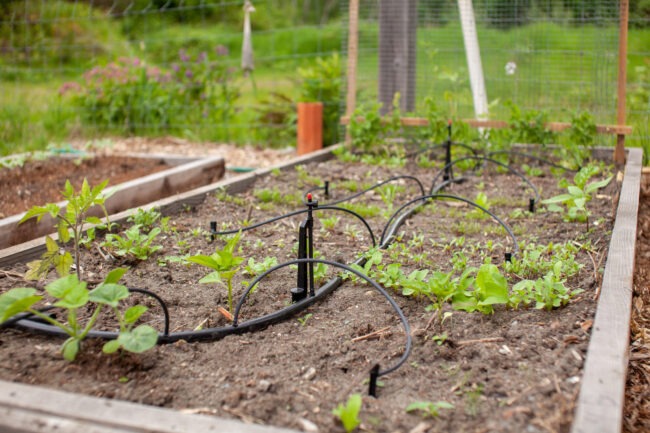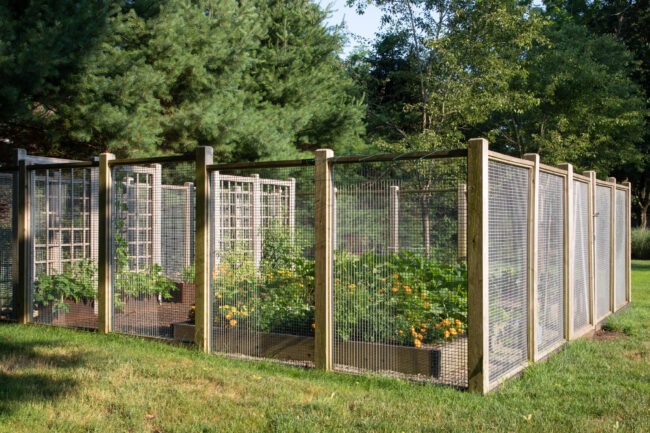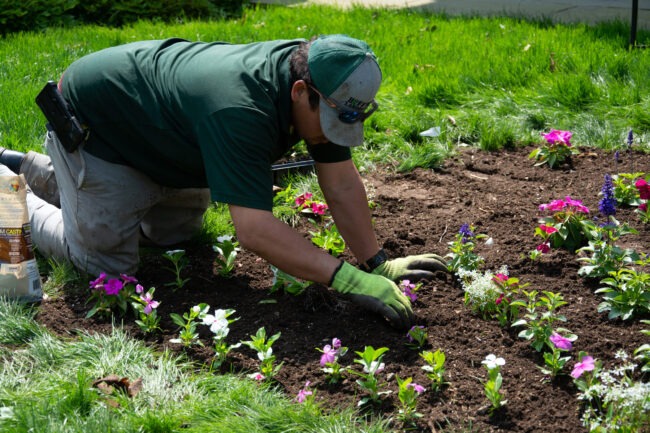Soil Nutrition and Weed Control: Natural Solutions for a Beautiful Backyard

Dealing with persistent weeds in your garden or lawn is a frustrating and seemingly endless battle. Despite your best efforts, they keep coming back. This constant struggle consumes your time and energy, not to mention the expense and environmental concerns associated with harsh chemical weed killers. You long for a beautiful, thriving backyard but feel trapped in a cycle of eradication and regrowth. Weak, weed-ridden soil prevents your desired plants from flourishing, leaving bare spots that weeds eagerly exploit.
The key to a beautiful, weed-free backyard lies in nurturing healthy, well-nourished soil. By focusing on natural soil nutrition and composting methods, you can create a balanced, sustainable environment where your plants thrive and weeds struggle to gain a foothold. Improve your soil’s health with natural nutrients and eco-friendly composting techniques to achieve the lush, vibrant landscape you desire, naturally and sustainably.
Why Healthy Soil is Key to Weed Control

The relationship between soil health and weed control is straightforward: healthy, nutrient-rich soil encourages plant growth, while weak or poor soil invites weeds. In a well-maintained garden, the plants you want will grow robustly and fill in the space, making it harder for weeds to take root. Weeds, like dandelions or crabgrass, often thrive in areas where the soil is compromised or nutrient-poor. They are opportunistic, filling gaps in the soil where desired plants aren’t thriving.
When your soil is well-nourished, your plants benefit in multiple ways:
- Stronger Roots: Healthy soil provides the necessary nutrients for plants to develop strong, deep root systems. These roots anchor plants firmly, making them more resilient to stressors like drought, pests, and diseases. Strong plants naturally compete with weeds for sunlight, water, and nutrients, reducing the space and resources available for unwanted plants to grow.
- Improved Plant Growth: When soil is rich in nutrients, plants can grow more vigorously. As they expand, their dense foliage forms a natural canopy that blocks sunlight from reaching weed seeds. This prevents weed seeds from germinating and establishes a dense, weed-free environment.
- Enhanced Microbial Activity: Healthy soil is teeming with beneficial microorganisms, such as earthworms and bacteria, that work symbiotically with plant roots. These microorganisms break down organic matter into plant-available nutrients, improving soil structure and supporting plant health. They also help suppress harmful pathogens and weeds.
Healthy soil is the foundation of a thriving garden. When soil is nourished and balanced with the right natural soil nutrients, weeds find it much harder to compete with your plants.
How Poor Soil Nutrition Encourages Weed Growth
Poor soil nutrition causes specific weeds to appear and weakens the entire foundation of your landscape. Nutrient-deficient or unbalanced soil struggles to support healthy plant growth, leaving your lawn or garden sparse, vulnerable, and easy for aggressive weeds to overtake. This leads to more time spent weeding, more frustration, and ultimately, a less vibrant outdoor space.
Common weeds in Connecticut, such as crabgrass, dandelions, and plantain, often indicate specific soil issues:
- Acidic Soil: Weeds like dandelions and clover tend to thrive in soil that is too acidic. In areas where the pH is off, these weeds outcompete grasses and other plants that prefer a more neutral pH.
- Low Nitrogen: Weeds such as clover often appear in lawns that are deficient in nitrogen. These weeds help fix nitrogen from the air and thrive in areas where the soil lacks this important nutrient.
- Compact Soil: Weeds like crabgrass thrive in compacted soil, which is common in areas with heavy foot traffic or poor drainage. Compacted soil restricts root growth, making it harder for plants to establish themselves, which allows weeds to take hold.
Nutrient-deficient soil provides the ideal environment for weeds to take advantage of bare spots. When plants aren’t getting the nutrients they need, weeds have a competitive advantage. By correcting these imbalances and improving your soil’s nutrition, you can prevent weeds from gaining a foothold in the first place.
Eco-Friendly Ways to Improve Your Soil with Natural Composting Methods

One of the most effective ways to improve soil health and reduce weeds is through natural composting methods. Composting organic materials like kitchen scraps, yard waste, and leaves can significantly improve your soil’s fertility, structure, and overall health. Here are some eco-friendly methods to improve your soil and keep weeds at bay:
- Backyard Composting: Start a compost pile in your yard to recycle organic waste into nutrient-rich compost. Collect kitchen scraps like vegetable peels, coffee grounds, and eggshells, and combine them with grass clippings, leaves, and small branches. Over time, this organic material will break down into a dark, crumbly compost that can be used to enrich your soil.
- Leaf Mulch: Leaves are one of the best natural mulches you can use to improve your soil. Instead of bagging leaves and sending them to the landfill, shred them and spread them on garden beds or around trees and shrubs. This layer of mulch will suppress weeds by blocking sunlight and will slowly break down, adding valuable organic matter to the soil.
- Grasscycling: If you mow your lawn, leave the grass clippings behind. Grass clippings are an excellent source of nitrogen, and when left on the lawn, they decompose and return nutrients to the soil. Grasscycling helps reduce the need for synthetic fertilizers and improves the overall health of your lawn.
- Sheet Mulching (Lasagna Gardening): Sheet mulching is a great way to suppress weeds in garden beds. It involves layering cardboard or newspaper over the soil to block weed growth, followed by a layer of compost and mulch. Over time, the cardboard breaks down, enriching the soil while keeping weeds at bay.
These natural composting methods are simple, affordable, and environmentally friendly. By incorporating compost and mulch into your gardening routine, you’re improving soil health while minimizing your reliance on chemical fertilizers.
Essential Natural Soil Nutrients and Their Benefits
Soil is made up of a variety of nutrients that plants need to grow. By adding natural soil nutrients to your soil, you can improve its fertility and create the ideal conditions for healthy plant growth. Here are the key nutrients and their benefits:
- Nitrogen (N): Nitrogen is essential for promoting leafy growth in plants. It is responsible for the green color in plants and is necessary for photosynthesis. Organic sources of nitrogen include compost, alfalfa meal, and fish emulsion. A nitrogen-rich soil helps plants grow quickly and robustly, which makes it harder for weeds to compete.
- Phosphorus (P): Phosphorus promotes strong root development and is crucial for flower and fruit production. Organic sources of phosphorus include bone meal and rock phosphate. Phosphorus encourages strong roots, making it more difficult for weeds to establish themselves in the soil.
- Potassium (K): Potassium helps plants resist disease, drought, and pests. It strengthens plant cell walls and supports overall plant health. Wood ash and kelp meal are natural sources of potassium. Plants that are well-fortified with potassium are more resilient, making them less susceptible to weed competition.
- Calcium (Ca): Calcium improves soil structure and helps plants absorb nutrients more effectively. It also strengthens plant cell walls. Lime is the most common natural source of calcium, and it can also help raise the pH of acidic soils.
- Magnesium (Mg): Magnesium is essential for photosynthesis and helps plants produce energy. Dolomitic lime and Epsom salt are natural sources of magnesium.
By incorporating these natural soil nutrients into your soil, you create a healthier environment for your plants. Strong plants are naturally better at suppressing weeds and outcompeting unwanted growth.
Seasonal Best Practices for Connecticut Backyards

Each season presents unique opportunities to improve soil health and manage weeds. Here’s a guide to the best practices for each season in Connecticut:
- Spring (March – May):
- Soil Testing: Start the season by testing your soil to determine its nutrient levels and pH. This will help you make informed decisions about amendments.
- Compost Applications: Apply a thin layer of compost to garden beds and lawns to boost soil fertility and improve soil structure.
- Weed Prevention: Apply corn gluten meal in early spring to help suppress weed seed development. While not as potent as chemical pre-emergents, it can reduce weed growth when timed properly and used consistently as part of an organic lawn care routine.
- Mulching: Apply a layer of mulch to garden beds to suppress weeds and retain moisture.
- Summer (June – August):
- Deep Watering: Water your plants deeply but infrequently to encourage deep root growth and reduce the chance of weed establishment.
- Maintain Mulch Layers: Ensure your mulch layers are intact and replenish them if needed to keep weeds under control.
- Weed Removal: Keep an eye on weeds and remove them promptly before they have a chance to flower and spread seeds.
- Fall (September – November):
- Add Compost and Leaf Mulch: Fall is the ideal time to add compost and mulch to garden beds to improve soil fertility and protect plants over the winter.
- Overseeding: Overseed your lawn in the fall to fill in any bare spots and reduce the chance of weed growth.
- Soil Amendments: Apply any necessary soil amendments, such as lime or organic fertilizers, based on soil test results.
- Winter (December – February):
- Protect Soil with Mulch: Apply mulch to protect soil from erosion and prevent winter weeds from emerging.
- Plan for Spring: Use the winter months to plan for the upcoming growing season. Research any new natural solutions to incorporate into your yard.
Long-Term Maintenance Tips for a Weed-Free, Healthy Yard
Maintaining a healthy, weed-free backyard requires ongoing care. Here are a few tips for long-term success:
- Regular Soil Testing: Test your soil every couple of years to ensure it remains balanced and nutrient-rich. This helps you stay on top of any changes in soil health and allows you to make informed decisions about amendments.
- Annual Composting: Make composting a regular part of your gardening routine. Add compost to your soil each year to replenish organic matter and improve soil structure.
- Minimal Soil Disturbance: Avoid tilling your soil excessively, as this can bring weed seeds to the surface. Use no-till methods to preserve soil health and prevent weed seeds from germinating.
- Timely Weed Removal: Stay on top of weeds by removing them early, before they can flower and spread seeds. Regular weeding reduces the overall weed population in your yard.
By following these long-term practices, you’ll create a sustainable, low-maintenance landscape that is resistant to weeds and full of thriving plants.
Get Help with Soil Nutrition Natural Solutions
Improving soil nutrition naturally is the most effective way to reduce weeds, enhance plant growth, and create a sustainable backyard. By incorporating natural soil nutrients and natural composting methods, you can transform your landscape into a vibrant, healthy, and weed-free space. With a little effort and attention to soil health, you’ll create a backyard that not only looks beautiful but also supports the environment. Ready to take the next step toward a healthier, more sustainable yard?
Contact Hoffman Landscapes for expert advice on improving soil health and managing weeds naturally. Start today, and watch your backyard thrive for years to come!
Tags:
